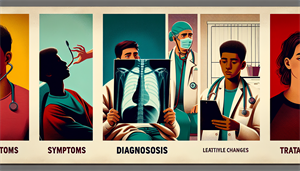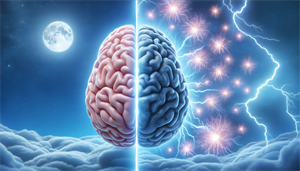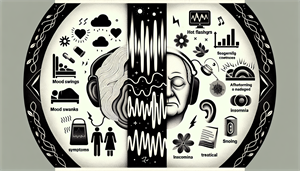
Can Teens Have Sleep Apnea?
Obstructive sleep apnea (OSA) is not unique to adults. Alarmingly, it also affects a significant number of adolescents, impacting their physical and emotional well-being. Despite being a serious condition, it often stays undiagnosed, as the signs are usually dismissed as typical teenage behavior. However, once identified, “can teens have sleep apnea?” becomes a crucial question, and the answer is yes. Sleep apnea in teens can be effectively treated, significantly improving their quality of life.
Key Takeaways
-
Sleep apnea, including the most common type, obstructive sleep apnea, is a significant condition in adolescents, affecting their physical and emotional well-being with symptoms like snoring, breathing pauses, headaches, and daytime fatigue.
-
The impact of sleep apnea in teenagers extends beyond sleep quality to potentially severe physical health issues like hormonal imbalances, high blood pressure, and mental health problems such as depression and anxiety.
-
Diagnosis of sleep apnea in teens relies on a comprehensive evaluation including a sleep study, with treatment options ranging from lifestyle changes and CPAP therapy to surgical interventions, depending on severity.
Exploring Sleep Apnea in Adolescents
Sleep apnea is a sleep disorder characterized by disruptions in breathing during sleep, leading to reduced sleep quality and daytime exhaustion. It’s not a condition that only adults suffer from.
Alarmingly, sleep apnea in adolescents is a significant condition that can have a profound impact on their physical and emotional well-being, with obstructive sleep apnea being the most prevalent type. Spotting the signs of sleep apnea early is vital in preventing the harmful effects this condition can impose on a teen’s health and overall well-being.
Some signs to look out for include:
- Loud snoring
- Pauses in breathing during sleep
- Restless sleep
- Morning headaches
- Daytime sleepiness
- Difficulty concentrating
- Irritability
If you suspect that your teen may have sleep apnea, it’s important to consult with a healthcare professional for a proper diagnosis and treatment options. Various treatments are available to treat sleep apnea in teenagers. However, the first step towards effective treatment is understanding what we are dealing with. Within this context, gaining insight into pediatric obstructive sleep apnea and its recognition is crucial.
Defining Pediatric Obstructive Sleep Apnea
Pediatric obstructive sleep apnea is characterized by the collapse of the upper airway during sleep, resulting in disrupted breathing and compromised sleep quality. This condition is the predominant form of sleep apnea observed in children and adolescents. The primary cause of this condition is the excessive relaxation of the muscles in the back of the throat during sleep, leading to the obstruction of the airway. This can result in mouth breathing and disrupted sleep, which are key signs of the disorder.
Diagnosing this condition necessitates distinguishing between types, given that both Obstructive and Central Sleep Apnea can affect children and teens. Obstructive sleep apnea is diagnosed in children and teenagers when they experience more than one interruption in their breathing per hour of sleep. This indicates that the condition is not just a minor inconvenience but a significant health concern that requires proper diagnosis and treatment.
Recognizing the Signs of Sleep Apnea in Teens
Identifying the signs of sleep apnea in teenagers is paramount to prompt diagnosis and treatment. The predominant indicators of obstructive sleep apnea in adolescents comprise snoring, gasping for air, and restless sleep. But these are not the only signs.
Adolescents suffering from sleep apnea may also encounter daytime sleepiness, leading to behavioral challenges and affecting their overall alertness during the day. However, there are less obvious signs that parents and caregivers should be aware of, such as hormonal imbalances, high blood pressure, and mental health problems like depression and anxiety.


